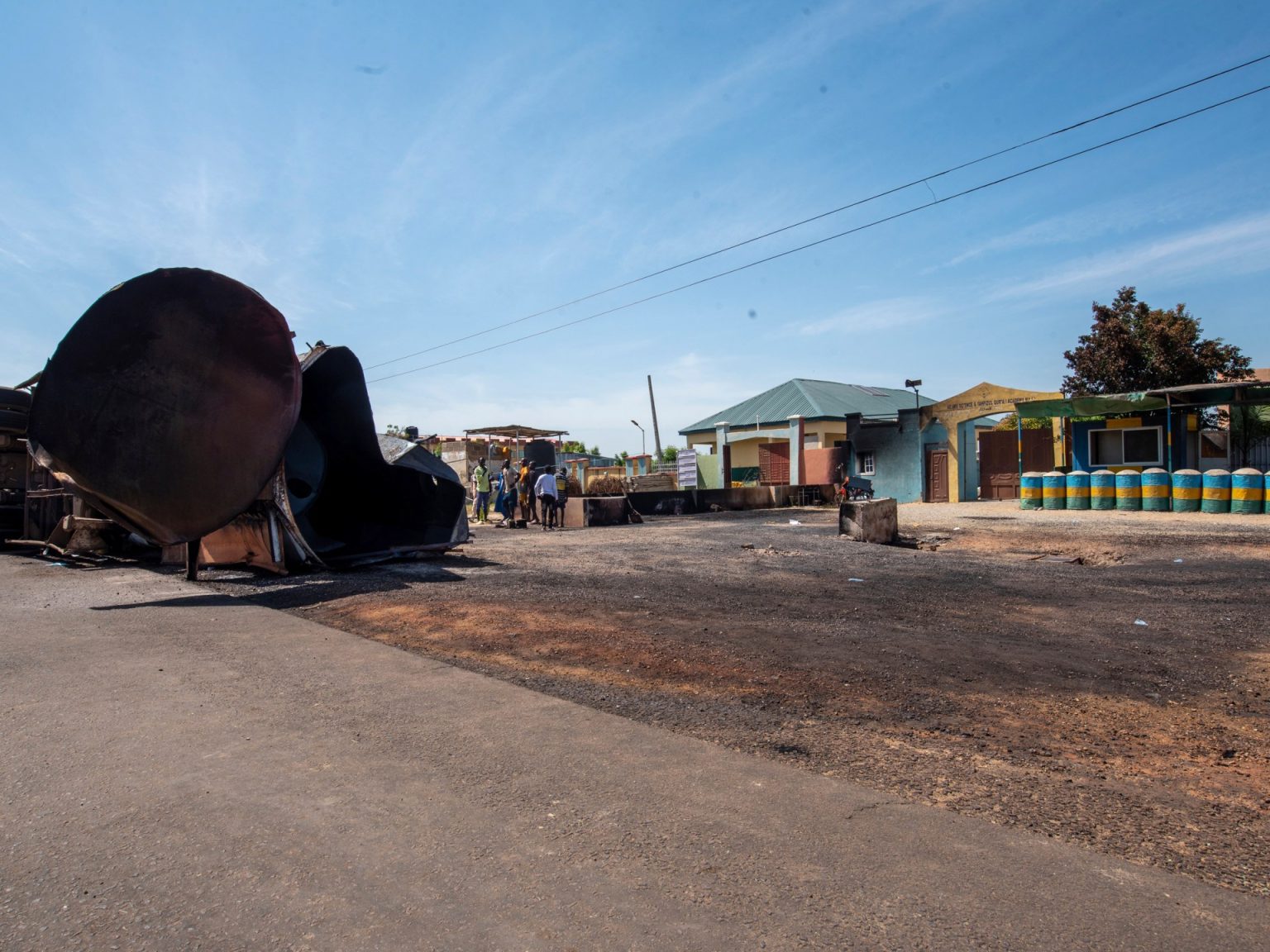A Recurring Tragedy: Fuel Tanker Explosions Plague Nigeria
The recent fuel tanker explosion in Dikko, Niger State, Nigeria, serves as a grim reminder of a recurring tragedy in Africa’s most populous nation. The incident, which claimed at least 60 lives and left many more injured, unfolded as people rushed to collect spilled fuel from an overturned tanker. The ensuing inferno engulfed another tanker, creating a catastrophic blaze that left many victims unrecognizable. This heart-wrenching event underscores the urgent need for comprehensive measures to address the root causes of these recurring disasters and prevent further loss of life.
Poverty and Soaring Fuel Prices: A Deadly Combination
The underlying factors contributing to these tragedies are deeply intertwined with Nigeria’s socio-economic challenges. The removal of a long-standing fuel subsidy in May 2023 has led to a staggering 400% increase in petrol prices, pushing many Nigerians deeper into poverty. This desperate situation has created a perverse incentive for people to risk their lives to collect spilled fuel, often for resale in the black market. This desperate act of survival transforms accidents into mass casualties, highlighting the devastating impact of economic hardship on vulnerable populations.
A History of Preventable Disasters
The Dikko explosion is not an isolated incident. Nigeria has witnessed a disturbing pattern of similar tragedies, each leaving a trail of devastation in its wake. In October 2024, over 150 people perished in Jigawa State under nearly identical circumstances, with bystanders rushing to collect fuel from an overturned tanker, only to be caught in a deadly explosion. Just a month earlier, in September 2024, Niger State was the scene of another fatal tanker accident, claiming 59 lives after a collision with a passenger and livestock truck. These recurring events expose a systemic failure to address the underlying safety issues and prevent further loss of life.
Government Response: Promises and Challenges
In the aftermath of the October 2024 tragedy, President Tinubu pledged to strengthen fuel transportation safety protocols and enhance law enforcement efforts to prevent future accidents. These promises included increased patrols, stricter adherence to safety regulations, and enhanced highway safety measures. While these intentions are commendable, the continued occurrence of these incidents raises concerns about the effectiveness and implementation of these measures. The government faces the daunting task of translating promises into tangible action to prevent further tragedies.
Addressing the Root Causes: A Multi-pronged Approach
Preventing future fuel tanker explosions requires a multi-faceted approach that addresses both the immediate safety concerns and the underlying socio-economic factors that drive people to risk their lives for spilled fuel. Strengthening safety regulations for fuel tankers, improving road infrastructure, and enforcing stricter penalties for negligent drivers are crucial steps. However, equally important is addressing the economic hardship that compels people to engage in this dangerous practice. Investing in job creation, social safety nets, and affordable fuel alternatives can alleviate the economic pressures that contribute to these tragedies.
A Call for Collective Action: Saving Lives and Preventing Future Disasters
The recurring fuel tanker explosions in Nigeria represent a tragic and preventable loss of life. Addressing this complex issue requires a concerted effort from all stakeholders, including government agencies, oil companies, and civil society organizations. Prioritizing public safety through enhanced regulations, improved infrastructure, and community awareness campaigns is essential. Simultaneously, addressing the root causes of poverty and economic hardship will reduce the desperation that drives people to risk their lives for spilled fuel. A collective commitment to safety, economic justice, and human dignity is crucial to prevent future tragedies and protect the lives of vulnerable communities.

